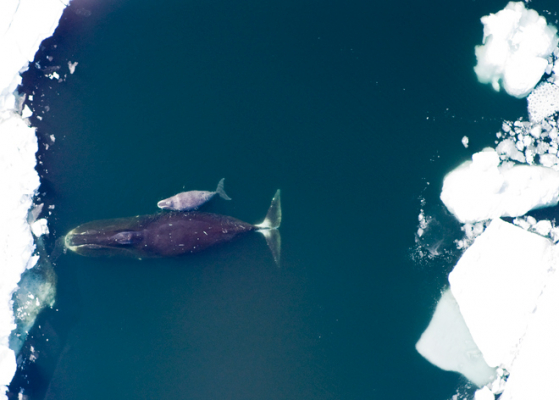IWC and CMS collaborate for second workshop on Cetacean Ecosystem Functioning
The second IWC-CMS joint workshop on Cetacean Ecosystem Functioning will be held in Bonn this month.
The IWC has long recognised the importance of whales in the functioning of ecosystems. The Commission adopted Resolutions directing work on the issue in 2016 and 2018, and the Conservation and Scientific Committees have both focused efforts on different aspects of this topic.
Scientific understanding of the ecological value of cetaceans is growing all the time. The Commission’s 2018 Resolution noted research demonstrating that whales enhance ecosystem productivity by concentrating nitrogen and iron near the surface of the water through their faeces. The Resolution also acknowledged that the large size of many cetaceans represents an important store of carbon. When whales die, their carcasses transport this carbon from the ocean’s surface to the deep sea where they serve as feeding opportunities for deep sea species and create small but significant ecosystems of their own.
The first Ecosystem Functioning workshop was held virtually in 2021. Participants sought to review existing knowledge, identify gaps and develop a roadmap of questions, hypotheses and tasks to address intersessionally and help the second workshop to focus on two aspects of ecosystem functioning:
- links with environments and regional ecosystem characteristics such as historical trends in different places.
- differences between pre-whaling and current populations and identification of information and knowledge gaps.
The workshop runs from 14 to 16 November 2023. Due to the highly technical nature of the discussions, participation is by invitation only.
A report of the workshop will be published on the IWC website and submitted to the IWC Scientific Committee for discussion at its meeting in April 2024.
Read the report of the first workshop on Ecosystem Functioning (2021)
Read the report of an IWC workshop on the Socio-Economic Values of the Contribution of Cetaceans to Ecosystem Functioning (2022)

